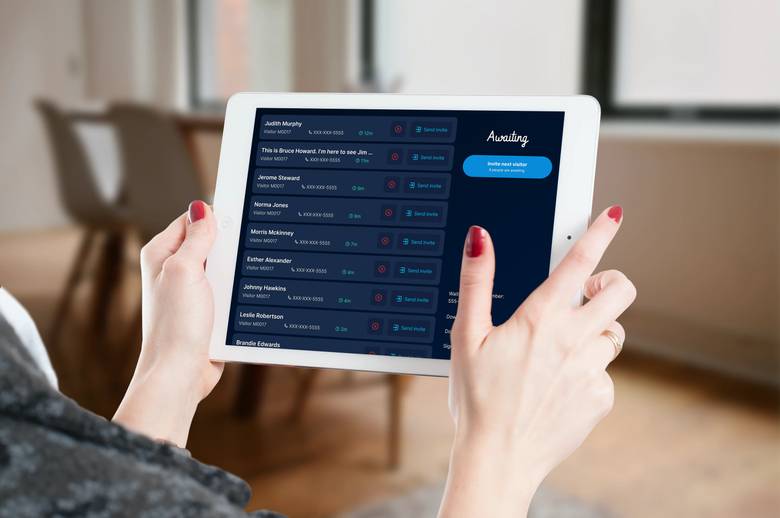Amazon is directly disrupting every industry they can get their hands on, including multifamily real estate. At Vaporware, we help property management and multifamily real estate companies harness technology to drive long-term growth. In order to do this work (and do it well), we constantly analyze market forces and major disruptors so we can help keep our real estate partners ahead of the curve. Here we share 3 major ways that Amazon is disrupting multifamily real estate, and how these industry shifts might impact your property management business going forward.
If you’ve been to Whole Foods, asked Alexa for a weather report, or ordered anything online in the last few days, you’ve experienced firsthand the growing impact of Amazon. Launched in 1994 as an alternative to traditional publishing and bookselling, Jeff Bezos’ brainchild has continued to disrupt industry after industry. According to Entrepreneur, Amazon is now the second most important ecommerce company in the world, dominating everything from tech and consumer products to media and entertainment. And the $1 trillion giant isn’t stopping there. Below, discover three ways Amazon is making waves in the real estate industry and impacting the future of multifamily.
Multi-family real estate disruption #1: Package and parcel management
According to Parcel Pending, parcel volume has increased by 48% over the past 2 years, an influx we can pretty confidently blame on Amazon Prime. And while it’s certainly convenient to get packages delivered in two days or less, these deliveries lead to significant time, space, and financial challenges for multifamily managers.In the convenience economy, many residents expect 24/7 access to their packages. Some communities provide a traditional mailroom, while others may even offer front door delivery. But as BDC Network notes, multifamily property managers “have to be concerned about legal liabilities associated with lost or damaged packages, and the mounting cost of staff hours devoted to accept and deliver packages.”
While some communities are dealing with the issue by rejecting package delivery entirely, tech-forward property managers are looking to solutions like package lockers to turn a challenge into a resident amenity. Hub by Amazon, for example, is a high-tech locker system that accepts packages from all retailers and keeps them securely stored. The Hub system includes resident data automation that integrates with property management software, allowing managers to track each tenant’s deliveries and pick up.
As Amazon’s e-commerce traffic continues to rise, so too will the onslaught of parcel deliveries. Multifamily managers who take a tech-focused approach will be better equipped to save time, space, and money while offering a helpful amenity to current and prospective tenants.
Multi-family real estate disruption #2: Home-buying incentives
Amazon is jumping directly into real estate through a partnership with Realogy, the nation’s biggest residential real estate broker. Dubbed “Turnkey,” this alliance will funnel potential buyers to Realogy’s brands, including Coldwell Banker, Century 21 Real Estate and Sotheby’s International Realty.Clients who purchase a property will receive up to $5,000 in products and services from Amazon, offering the retail giant a way to market inventory like connected home devices, furniture, cleaning products, and more. Multifamily owners selling property through one of Realogy’s agents could use this Amazon bundle as a way to entice buyers, but those selling independently may have new competition on the block.
Multi-family real estate disruption #3: Smart home devices
You’ve probably been familiar with Alexa for a while, but did you know that Amazon recently announced an entire suite of new Alexa-enabled devices? The lineup includes smart plugs, a clock, and even a microwave. In addition to their own branded goods, Amazon launched the Alexa Fund to invest in (and buy up) other companies harnessing voice technology. The fund acquired video home security device Ring for $1 billion in 2018 and is a major investor in Plant Prefab, a Southern California-based smart home builder.Last year, the giant expanded its foray into residential real estate, partnering with Lennar, the nation’s largest homebuilder, to launch “Amazon Experience Centers.” The Experience Centers transform Lennar model homes into a showroom for smart home gadgets and functionality.
According to HousingWire, “Lennar could seemingly see increased traffic (and potentially more buyers) to its model homes from people who want to check out Amazon’s offerings.” In order to compete, multifamily owners may want to consider incorporating smart home devices like Nest thermostats or smart key access into their units. Even tech-savvy offerings like an online maintenance and communication platform can help differentiate your community from its competitors and attract tenants.
For multifamily owners, advanced technology can be “a potential source of ancillary income, a means of better community management, and an important conduit for data collection.” As Amazon continues to disrupt the real estate industry, multifamily operators who focus on innovation and implement a tech-forward approach will be primed for success.








